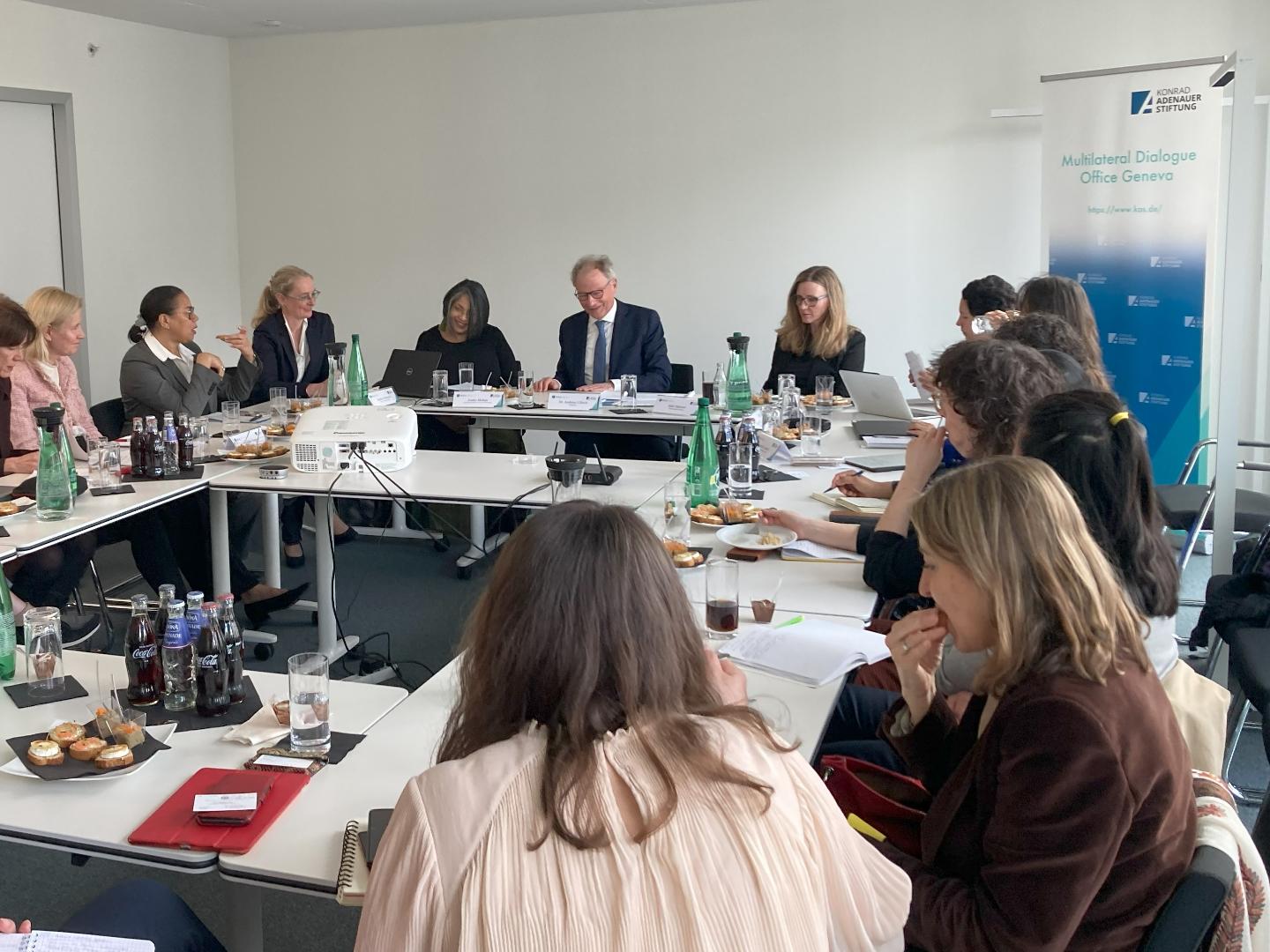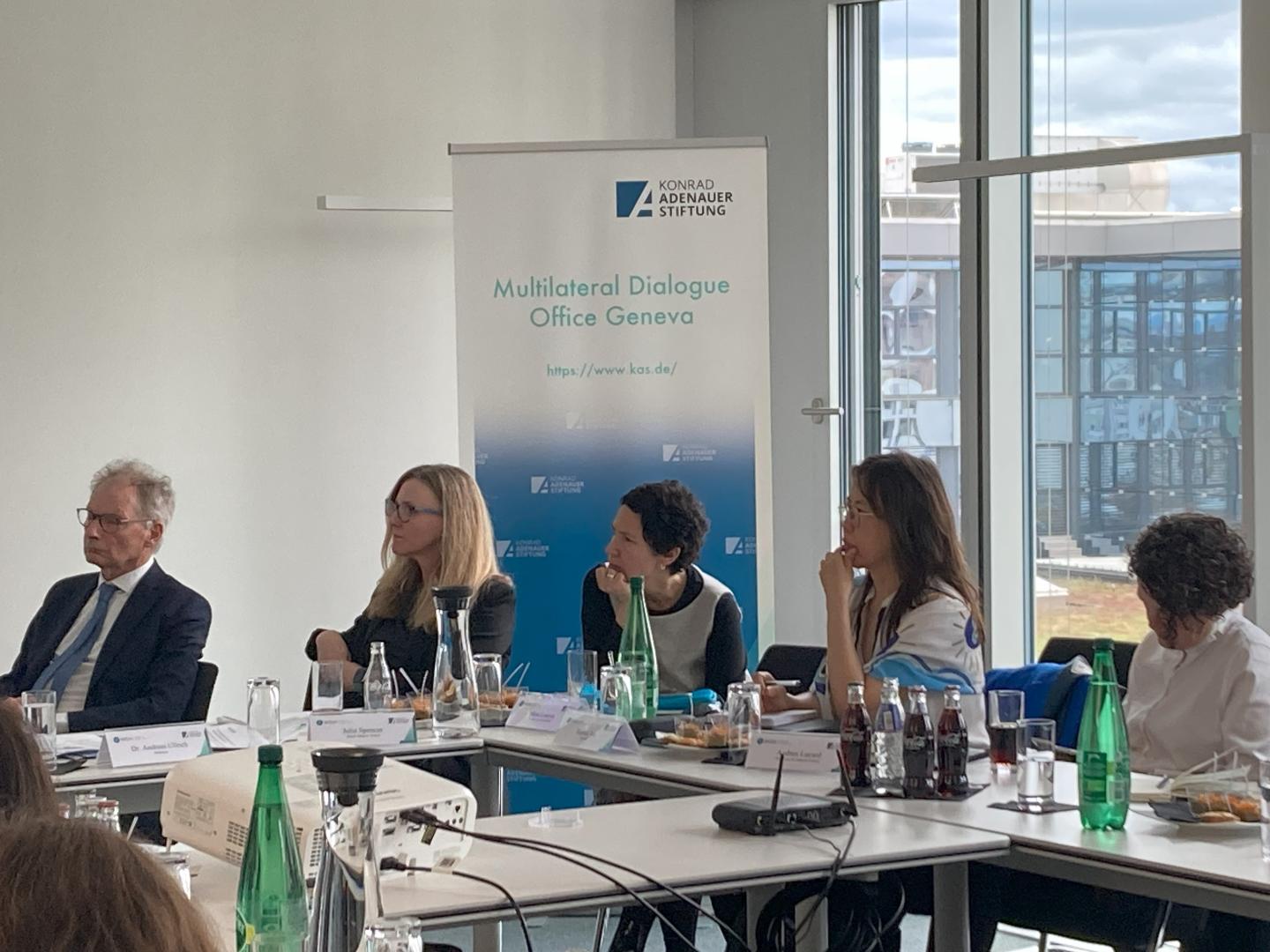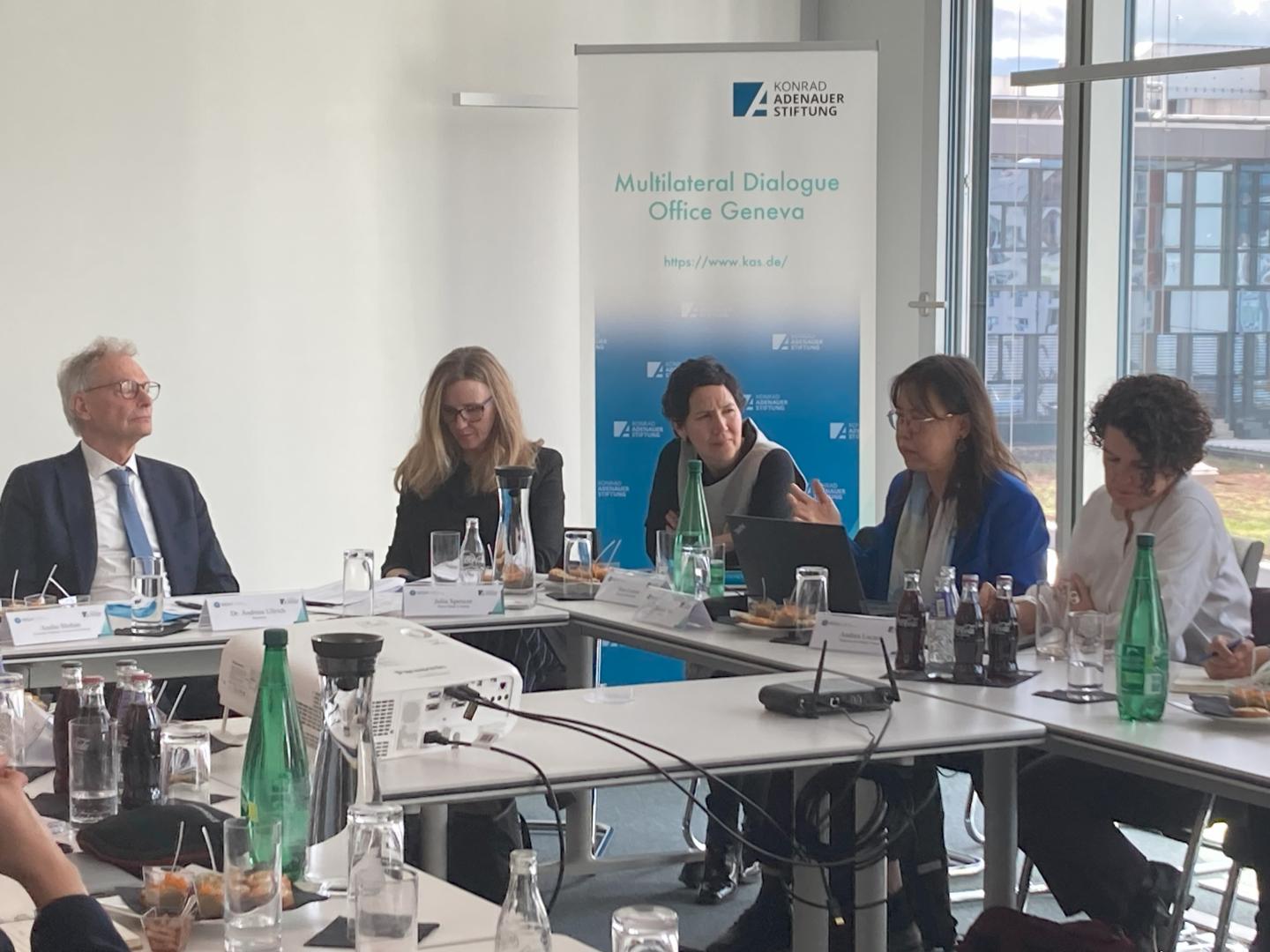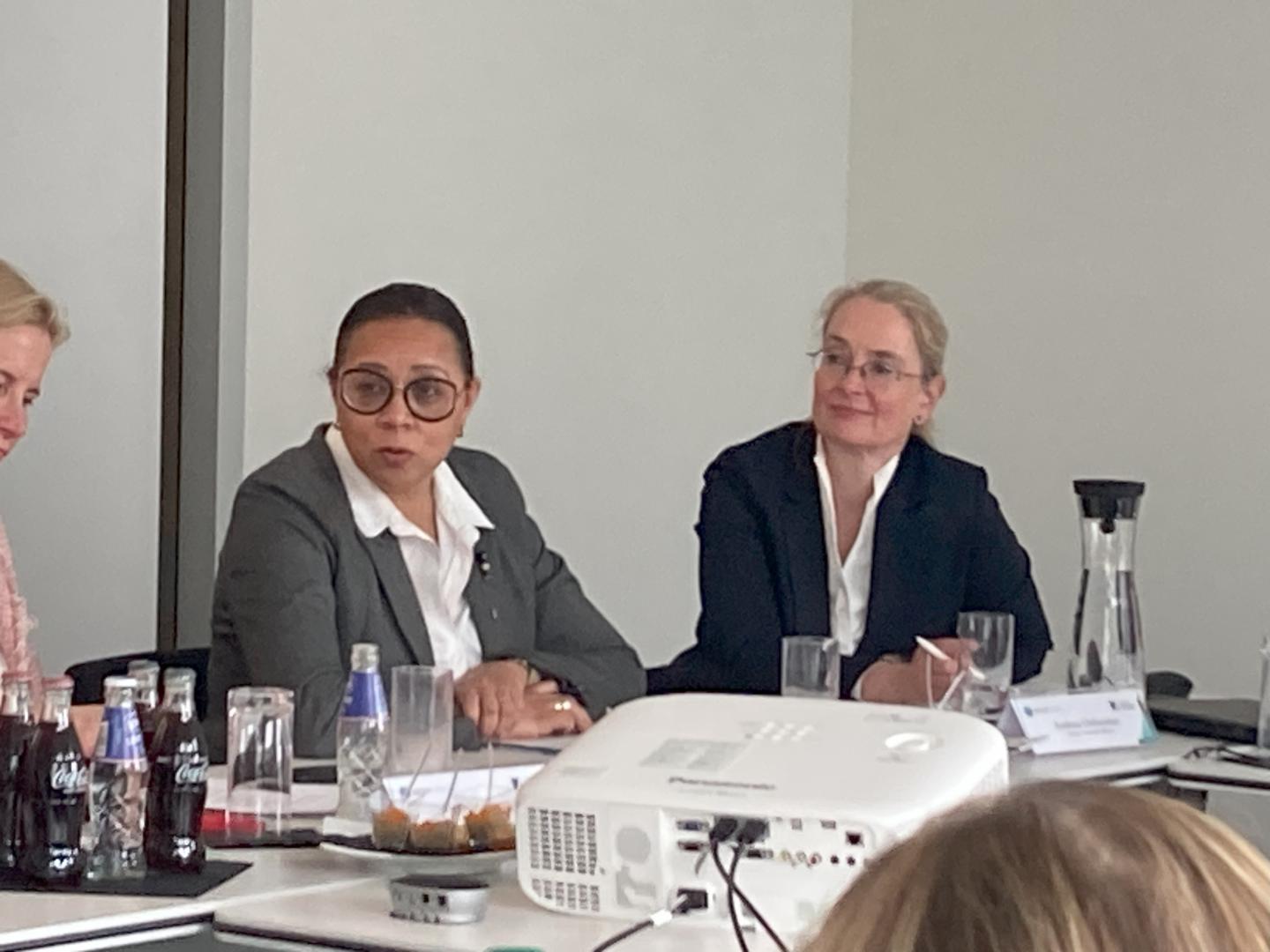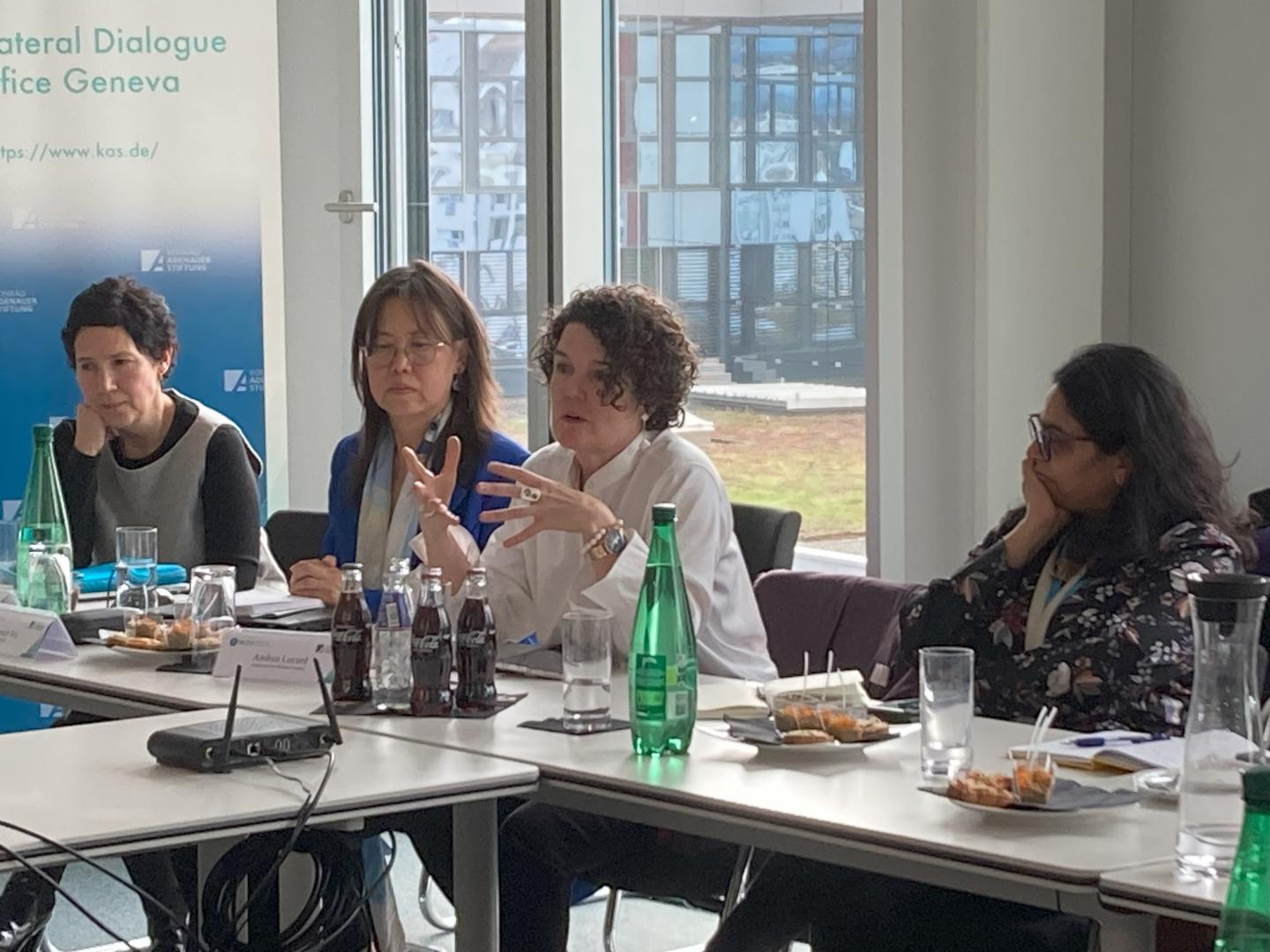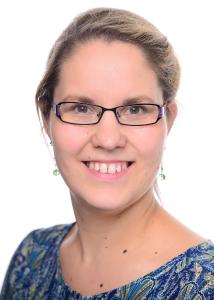Andrea Ostheimer, Director of KAS Geneva, opened the luncheon discussion by setting the stage for the dialogue. She emphasized the significance of addressing three major issues concerning women’s health rights: access to healthcare, the need for gender-specific diagnostics and therapies, and the protection of women's rights against pushbacks and reversals of already agreed-upon language. Her introductory remarks underscored the importance of confronting these challenges head-on to ensure equitable and comprehensive healthcare for women globally.
Masa Loayza of Women in Global Health highlighted critical challenges facing women's health rights. Despite commitments to Universal Health Coverage (UHC), many women worldwide still lack access to basic healthcare, with 800 preventable deaths occurring daily due to pregnancy-related causes. Loayza stressed the urgency of addressing gender disparities, calling for gender-responsive health systems and empowerment for women health workers. She further highlighted the imperative for inclusive services and enhanced female representation in health leadership to drive forward the women's agenda for equality.
Dr. Andreas Ullrich, the moderator, brings extensive experience in women's health from his tenure at the World Health Organization in Geneva and his current leadership at the Charité Berlin's Center for Clinical Global Women's Health. He highlighted successful collaborations between the pharmaceutical industry, multilateral systems, and civil society. Notably, he shared an example of best practice to improve women's health, citing his efforts to make the HPV vaccine more accessible. Through innovative partnerships and cooperation among UN organizations, the pharmaceutical industry, political decision-makers, and civil society, the costs of such a vaccination were successfully reduced.
Julia Spencer, Vice President of MSD Global Multilateral Engagement Strategic Alliance and International Relations, framed the dialogue by shedding light on the need for inclusive research to address health disparities in gender equality. Her plea resonated with the audience as she underscored the role of amplifying women's voices, investing in tailored healthcare solutions, and advocating for policy reforms to bridge existing gaps.
Anshu Mohan, Senior Advisor at the Partnership for Maternal, Newborn and Child Health (PMNCH), emphasized the untapped potential of adolescent girls in driving societal progress. She articulated the urgency of prioritizing investments in adolescent well-being, stressing that neglecting this demographic cohort could lead to profound societal consequences.
Pernille Fenger, Chief of the Geneva Office at UNFPA, outlined the intersectionality between labour, health, and equity. Her intervention emphasised the role of political will and global collaboration in advancing sexual and reproductive health rights, particularly in the face of prevailing pushbacks.
Hannah Wu, Chief of the Women Rights and Gender Section at OHCHR, provided insights into leveraging the human rights framework to safeguard women's health rights amidst escalating challenges. She emphasized the holistic and intersectional nature of human rights discourse, urging stakeholders to harness its normative power to effect change.
In response, Ambassador Clara Delgado Jesus shared reflections on the challenges and triumphs in Cabo Verde's journey towards gender equality in healthcare. Her account underscored the stark realities faced by women, juxtaposed with the resilient spirit driving progress despite adversities.
Andrea Lucard, Chief Officer Corporate Strategy and Affairs at Medicines for Malaria Venture, and member of the Swiss Chapter of Women in Global Health, accentuated the indispensable role of civil society in advancing women's health agendas. Her call for data-driven interventions and collaborative partnerships resonated strongly, highlighting the key role of transparency and collective action.
The luncheon discussion went beyond identification of challenges, evolving into a robust exchange on actionable measures imperative for catalysing transformative change. From inclusive research practices to political advocacy, the panellists shone a light on multifaceted pathways towards realizing women's health and rights globally.
As the event concluded, there was consensus on the need to sustain dialogue, collaboration, and collective action to propel the women's health agenda forward. The Konrad Adenauer Foundation remains firmly committed to promoting multilateral dialogues which cross borders and produce inclusive solutions for a fairer world.
Topics
Provided by
Political Academy in Sidirokastro, Serres
About this series
The Konrad-Adenauer-Stiftung, its educational institutions, centres and foreign offices, offer several thousand events on various subjects each year. We provide up to date and exclusive reports on selected conferences, events and symposia at www.kas.de. In addition to a summary of the contents, you can also find additional material such as pictures, speeches, videos or audio clips.



